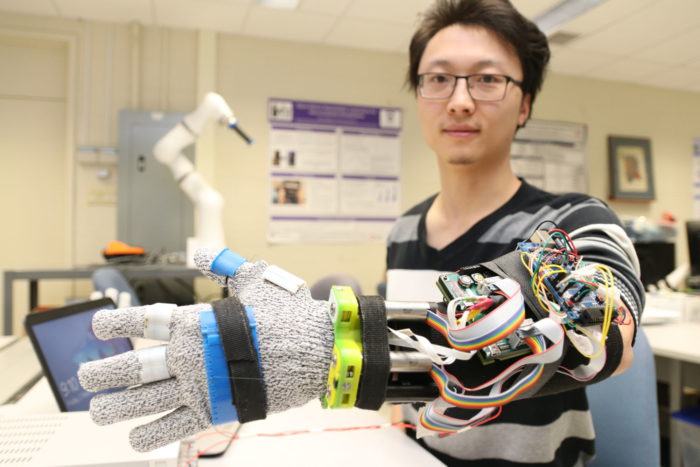Western University researchers have developed a new prototype for special gloves that can help people cope with the tremors associated with Parkinson’s disease.

Electrical and computer engineering professor, Ana Luisa Trejos, and her wearable biomechatronics laboratory group, have designed gloves that give people with Parkinson’s better motor control, and that can reduce or even restrict involuntary tremors that impact 25 per cent of those with the disease.
WATCH BELOW: Tears could help diagnose Parkinson’s disease

Trejos said the gloves help target the tremors that afflict the fingers of people who have Parkinson’s.
“It’s the ones in their fingers that really prevent them from performing the activities of daily living,” said Trejos, who is also a key investigator at Western’s Bone and Joint Institute.

Get weekly health news
Past studies Trejos has done with her team targeted elbows and wrists with suppression devices, but they would exaggerate the tremors in the fingers, causing even more difficulty for people using them.
The new personalized gloves track voluntary movement, and allow the wearer to finish a particular task while minimizing the tremor.
“Our gloves don’t suppress all movements, which is what most other wearable tech systems do,” Trejos said. “Our gloves actually allow the voluntary movement to happen and at the same time, prevent the tremor from occurring.”
The gloves will be custom designed for each of a person’s hands, and they aim to minimize the frustration a person with Parkinson’s might feel if they’re unable to do something on their own.
“It can be very frustrating to not be able to eat or button a shirt on your own. Or even draw. Things we take for granted. By creating a glove that allows people to perform these actions while suppressing the tremors, I think they could go back to being much more independent in their own homes for a far longer period of time,” Trejos said.
She and her team were able to work on the project with support from the Peter C. Maurice Fellowship in Biomedical Engineering.












Comments